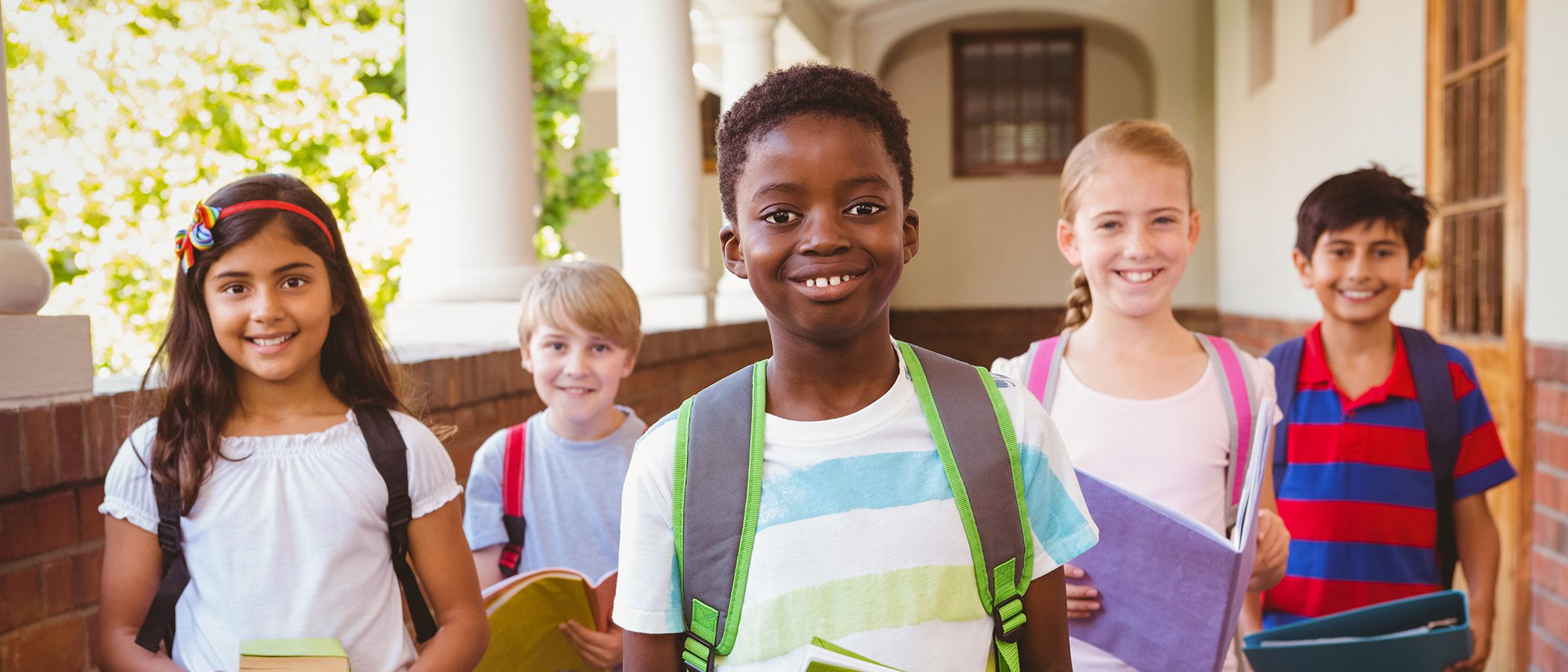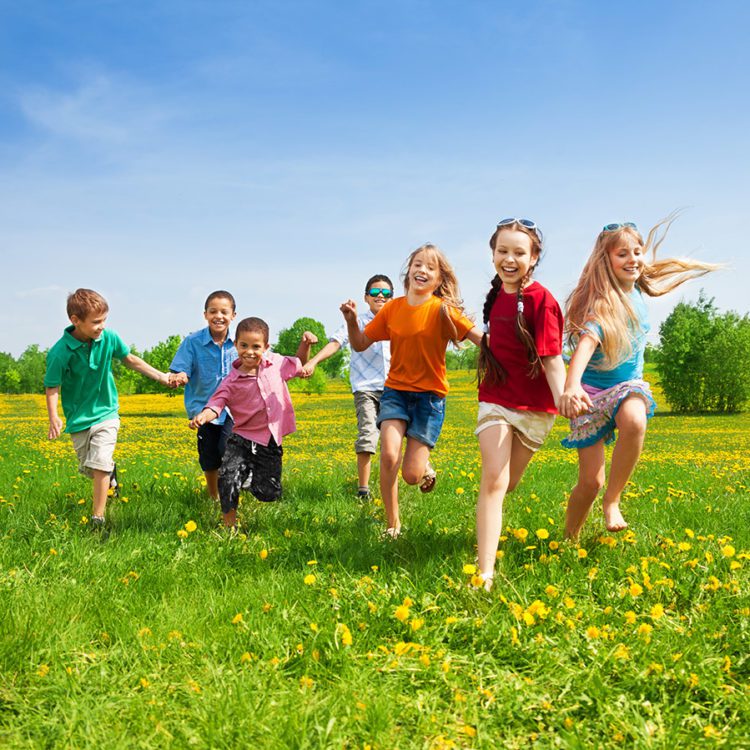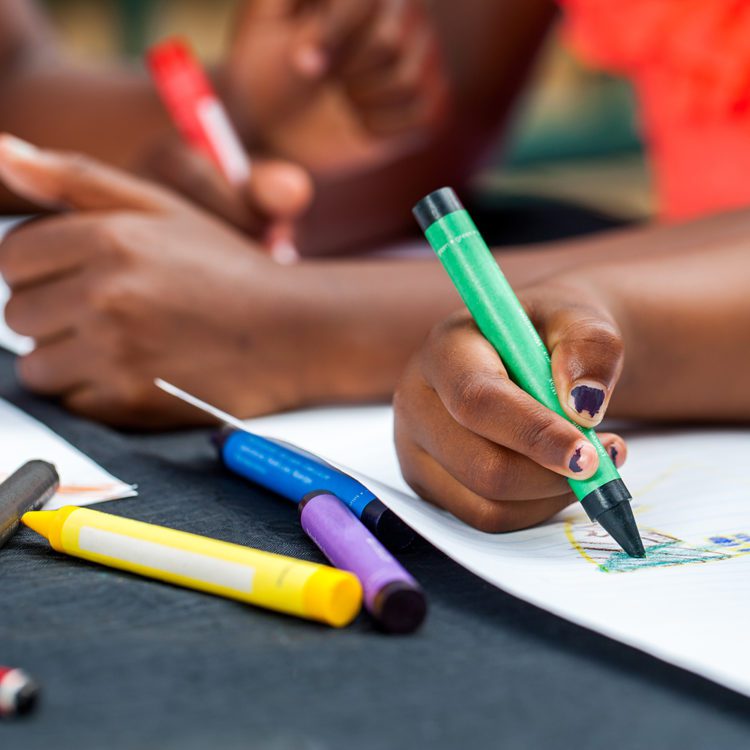OVERVIEW
Investment in early childhood is a moral imperative that also saves society from 7 to 14 dollars for every dollar spent (Heckman). This realization along with newfound governmental interest in preschool education quality, the Head Start program has put early childhood on center stage. Research has followed pace and we have been privileged to be a part of that new wave. As a co-investigator on the NICHD Study of Early Child Care and Youth Development from 1991-2004, our lab at Temple University was part of one of the most expansive studies of early child care and child development in context. This study, enrolling 1364 children across America is considered by many to be a gold standard within psychological research.
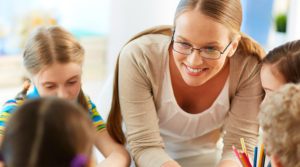 Our work in early education produced research on early literacy and early spatial learning and sparked other work in our lab on literacy, mathematics, assessment, and on the kinds of learning that can take place in informal settings like museums (Song et al., 2017; Hassinger-Das et al., 2017). Current research in our laboratory is directly investigating the role of guided or playful learning on child outcomes. Research in these areas demonstrates the exciting interplay between science and practice. For example, one recent paper suggests that play might help us set a mindset (what we call a mis en place) for learning that helps us pay more attention to what we are learning and to stay on task as we are learning (Weisberg et al., 2014).
Our work in early education produced research on early literacy and early spatial learning and sparked other work in our lab on literacy, mathematics, assessment, and on the kinds of learning that can take place in informal settings like museums (Song et al., 2017; Hassinger-Das et al., 2017). Current research in our laboratory is directly investigating the role of guided or playful learning on child outcomes. Research in these areas demonstrates the exciting interplay between science and practice. For example, one recent paper suggests that play might help us set a mindset (what we call a mis en place) for learning that helps us pay more attention to what we are learning and to stay on task as we are learning (Weisberg et al., 2014).
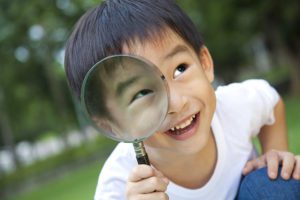 Our translational work on early education is presented in our book, Becoming Brilliant in the 21st Century: The 6Cs (2016, APA Press), which became a New York Times Bestseller and won the Bronze Medal of the Living Now Book Awards for Parenting. It features the 6Cs (collaboration, communication, content, critical thinking, creative innovation and confidence) as a set of skills that will foster global outcomes needed for success in the 21st Century Global world (Golinkoff & Hirsh-Pasek, 2016). First introduced in a Mandate for playful learning in preschool (Hirsh-Pasek et al., 2009), the 6Cs offer a systematic and evidence-based way of rethinking education for our time. We are asking how research from the science of learning might help us put the education back in “educational” apps (Hirsh-Pasek et al., 2015). A brief review of Becoming Brilliant appears in an NPR interview, A Plan for Raising Brilliant Kids, According to Science, by Anya Kamenetz.
Our translational work on early education is presented in our book, Becoming Brilliant in the 21st Century: The 6Cs (2016, APA Press), which became a New York Times Bestseller and won the Bronze Medal of the Living Now Book Awards for Parenting. It features the 6Cs (collaboration, communication, content, critical thinking, creative innovation and confidence) as a set of skills that will foster global outcomes needed for success in the 21st Century Global world (Golinkoff & Hirsh-Pasek, 2016). First introduced in a Mandate for playful learning in preschool (Hirsh-Pasek et al., 2009), the 6Cs offer a systematic and evidence-based way of rethinking education for our time. We are asking how research from the science of learning might help us put the education back in “educational” apps (Hirsh-Pasek et al., 2015). A brief review of Becoming Brilliant appears in an NPR interview, A Plan for Raising Brilliant Kids, According to Science, by Anya Kamenetz.
The 6 C's Go to School
As today’s children and teens enter the 21st-century economy, they will pursue careers that are driven by information-generation and information-sharing. Their professional world will prioritize the critical analysis and synthesis of this information, while simultaneously valuing innovation, curiosity, and creativity. However, for many reasons, the education system in which these children and teens are learning generally remains focused on academic content instruction with limited emphasis on these other critical skills.
In 2016, Kathy Hirsh-Pasek (Temple University) and Roberta Golinkoff (University of Delaware) published Becoming Brilliant: What Science Tells Us About Raising Successful Children. Their book introduced these vital skills for the information age as the“6 C’s”: Collaboration, communication, content, critical thinking, creative innovation, and confidence. It bridged the latest theories from the learning sciences with education for the benefit of parents and educators. Our current study, “The 6 C’s Go to School,” brings these 6 C’s skills into the classroom for the first time through theme-based learning.
Our team at Temple University, the University of California – Irvine, and the University of Delaware is collaborating with teachers and administrators in the Godfrey-Lee Public Schools—a small school district with a high proportion of Latino dual language learners from low-income families in Grand Rapids, Michigan—to implement a new approach focused on the 6 C’s across all K-12 classrooms in the district. While this effort only recently began in October 2018, preliminary results from the K-2 classrooms suggest student growth in the “C’s” of critical thinking, confidence, and creativity. We hope that “The 6 C’s Go to School” project will continue to test student growth across the 6 C’s, showcasing how these 21st century skills can be taught in a real classroom through active collaboration between researchers and educators to better prepare today’s learners for life-long success in the modern world.
FEATURED ARTICLES
Spatial thinking: Why it belongs in the preschool classroom
This article addresses the absence of spatial skills instruction and playful learning opportunities in preschools by presenting the latest research and providing evi- dence-based examples of how preschools can integrate spatial language and ges- tures into everyday activities, as well as provide spatial classroom activities. Since spatial thinking develops early and predicts later success in STEM domains, it is imperative to bring spatial learning experiences into preschool classrooms.
Read Full Article
ELL apps ‘open doors’ for early childhood students
A recent article by Bridie Bereza shows the first results of our project “The 6 C’s Go to School”, which incorporates the the 6 C’s principles into the classroom.
Piecing together the role of a spatial assembly intervention in preschoolers’ spatial and mathematics learning: Influences of gesture, spatial language, and socioeconomic status
Spatial skills are associated with mathematics skills, but it is unclear if spatial training transfers to mathematics skills for preschoolers, especially from underserved communities. The current study tested (a) whether spatial training benefited preschoolers’ spatial and mathematics skills, (b) if the type of feedback provided during spatial training differentially influenced children’s spatial and mathematics skills, and (c) if the spatial training’s effects varied by socioeconomic status (SES). … Results indicate that, especially for low-income learners, spatial training can improve children’s early spatial and mathematics skills.
Read Full Article
SELECTED ARTICLES
Bower, C., Zimmermann, L., Verdine, B., Pritulsky, C., Golinkoff, R. M., & Hirsh-Pasek, K. (2021). Enhancing spatial skills of preschoolers from under-resourced backgrounds: A comparison of digital app vs. concrete materials. Developmental Science. https://doi.org/10.1111/desc.13148
Pritulsky, C., Morano, C., Odean, R., Bower, C., Hirsh-Pasek, K., & Michnick Golinkoff, R. (2020). Spatial thinking: Why it belongs in the preschool classroom. Translational Issues in Psychological Science, 6(3), 271–282. https://doi.org/10.1037/tps0000254
Bower, C., Zimmermann, L., Verdine, B., Toub, T. S., Islam, S., Foster, L., Evans, N., Odean, R., Cibischino, A., Pritulsky, C., Hirsh-Pasek, K., & Golinkoff, R. M. (2020). Piecing together the role of a spatial assembly intervention in preschoolers’ spatial and mathematics learning: Influences of gesture, spatial language, and socioeconomic status. Developmental Psychology, 56(4), 686–698.
Neale, D.*, Morano, C.*, Verdine, B. N., Golinkoff, R. M., & Hirsh-Pasek, K. (2020). “Why are there big squares and little squares?” Preschoolers’ questions about shapes as an indicator of domain awareness. In L. P. Butler, S. Ronfard, & K. H. Corriveau (Eds.), The questioning child: Insights from psychology and education. Cambridge, UK: Cambridge University Press, pp. 164-183.
Pace, A., Levine, D., Carver, L., Golinkoff, R., & Hirsh-Pasek, K. (2020). Keeping the end in mind: Preliminary brain and behavioral evidence for a broad endpoint bias in pre-linguistic infants. Infant Behavior and Development, 58, 101425.
Goldstein, T. R., Lerner, M. D., Paterson, S., Jaggi, L., Toub, T. S., Hirsh-Pasek, K., & Golinkoff, R. M. (2019). Stakeholder perceptions of the effects of a public school-based theatre program for children with ASD. Journal of Learning Through the Arts, 15(1). https://escholarship.org/uc/item/5qg6j1n5
Morris, A., Hassinger-Das, B., Zapata, M., & Hirsh-Pasek, K. (2019). Opportunities to enrich caregiver-child interactions. Zero to Three, 40(2), 52-58.
Levine, D., Buchsbaum, D., Hirsh-Pasek, K., & Golinkoff, R. M. (2019). Finding events in a continuous world: A developmental account. Developmental Psychobiology, 61(3), 376-389. doi:10.1002/dev.21804.
Hirsh-Pasek, K., & Golinkoff, R. M. (2019). Putting your data to good use: Entering the real world of children and families. Perspectives on Psychological Science, 14(1), 37-42. doi: 10.1177/17456916188115161.
George, N., Göksun, T., Hirsh-Pasek, K., & Golinkoff, R. M. (2019). Any way the wind blows:Children’s inferences about force and motion events. Journal of Experimental Child Psychology, 177, 119-131.
Pace, A., Alper, R., Burchinal, M., Golinkoff, R. M., Hirsh-Pasek, K. (2018). Measuring success: Within- and cross-domain predictors of academic and social trajectories in elementary school. Early Childhood Research Quarterly, 46, 112-125. doi: 10.1016/j.ecresq.2018.04.001.
Golinkoff, R. M., Hirsh-Pasek, K., Grob, R., & Schlesinger, M. (2017). “Oh the places you’ll go” by bringing developmental science into the world. Child Development, 1403-1408.
Grob, R., Schleisinger, M., Pace, A., Hirsh-Pasek, K., & Golinkoff, R. M. (2017). Playing with ideas: Evaluating a collective experimental intervention designed to enrich perceptions of play. Child Development, 1419-1434.
Hassinger-Das, B., Toub, T. S., Hirsh-Pasek, K., & Golinkoff, R. M. (2017). A matter of principle: Applying language science to the classroom and beyond. Translational Issues in Psychological Science, 3, 5-18. doi: 10.1037/tps0000085.
Golinkoff, R., & Hirsh-Pasek, K. (2016). Becoming Brilliant: What science teaches us about raising successful children APA Press.
Hirsh-Pasek, K., & Golinkoff, R. M. (2016). The preschool paradox: It’s time to rethink our approach to early education. SCIENCE, 351, 1158.
Morhring, W., Ramsook, K., Hirsh-Pasek, K., Golinkoff, R. M., & Newcombe, N. (2016). Where music meets space: Children’s sensitivity to continuous pitch magnitudes is related to mental spatial transformations. Cognition, 151, 1-5.
Hirsh-Pasek, K. & Golinkoff, R. M. (2016). Two missions in search of a shared culture. In D. Sobel & J. Jipson (Eds.), Cognitive development in museum settings: Relating research and practice (pp. 222-230). NY: Routledge.
Hirsh-Pasek, K., Zosh, J., Golinkoff, R. M., Gray, J., Robb, M., & Kaufman, J. (2015). Putting education in educational apps: Lesson for the science of learning. Psychological Science in the Public Interest, 16(1), 3-34.
Weisberg, D. S., Kittredge, A. K., Hirsh-Pasek, K., Golinkoff, R. M., & Klahr, D. (2015). Guided play: Making play work for education. Phi Beta Kappan, 96(8), 8-13.
Verdine, B. N., Lucca, K. R., Golinkoff, R. M., Newcombe, N. S., & Hirsh-Pasek, K. (2015). The shape of things: The origin of young children’s knowledge of the names and properties of geometric forms. Journal of Cognition and Development, 12, 315-331.
Verdine, B., Irwin, C., Golinkoff, R. M., & Hirsh-Pasek, K. (2014). Contributions of executive function and a new test of spatial-geometric skill to preschool mathematics achievement. Journal of Experimental Child Psychology, 126, 37-51.
Verdine, B., Golinkoff, R. M., Hirsh-Pasek, K., & Newcombe, N. (2014). Finding the missing piece: Blocks, puzzles, and shapes fuel school readiness. Trends in Neuroscience and Education, 7-13.
Weisberg, D., Hirsh-Pasek, K., Golinkoff, R. M., & McCandliss, B. (2014). Mis en place: Setting the stage for thought and action. Trends in Cognition, 276-278.
Friedman, S., Scholnick, E., Bender, R., Vandergift, N., Spieker. S., Hirsh-Pasek, K., Keating, D., Park, Y., & NICHD Early Child Care Research Network. (2014). The growth of planning in middle childhood: Early predictors and later outcomes. Child Development, 85(4), 1446-1460.
McCabe, A., Tamis-LeMonda, C., Bornstein, M., Golinkoff, R. M., Hirsh-Pasek, K., Hoff, E., Kuchiro, Y., Melzi, G., Mendelson, A., Paez, M., Song, L., & Wishard, A. (2013). Multilingual children: Beyond myths towards best practices. Foundation for Child Development: Social Policy Report, 27(4).




